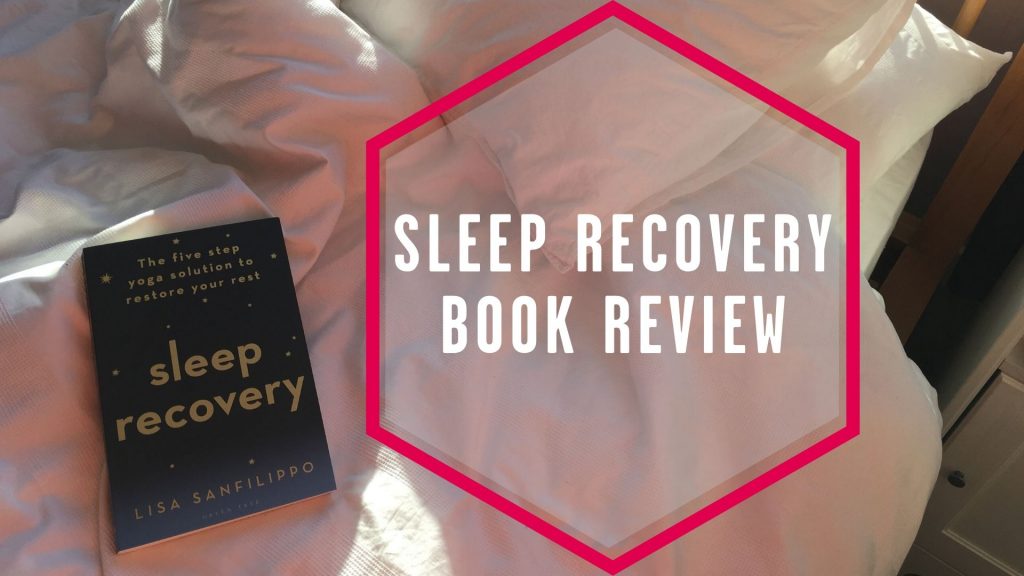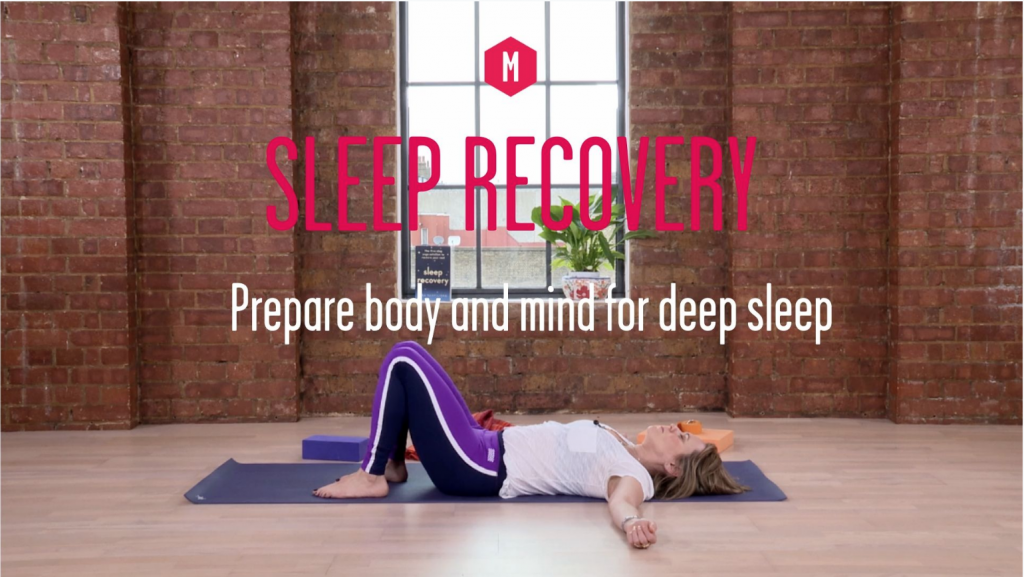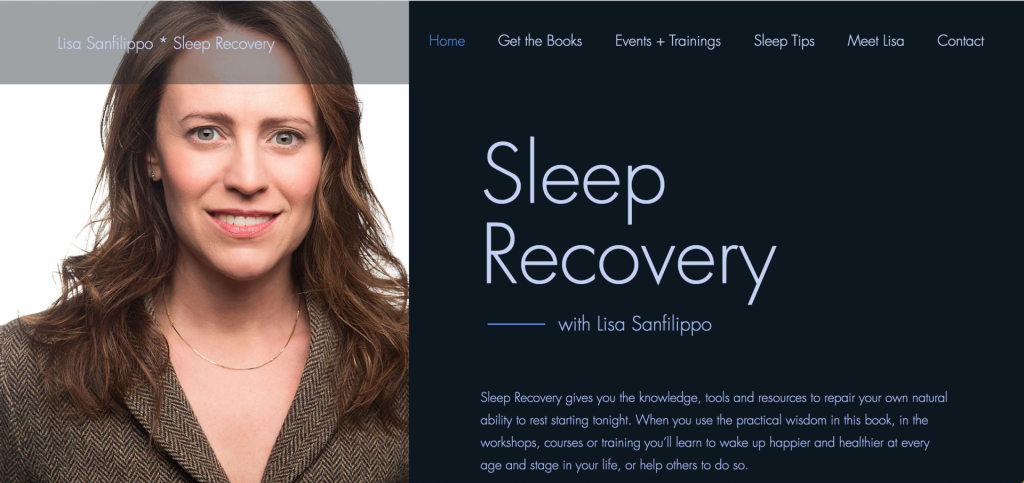
Do you yearn to fall asleep and stay asleep? Do you find sleep elusive? Or do you wake in the small hours of the night unable to soothe your mind? In Sleep Recovery Lisa Sanfilippo offers a five-step solution to restore your rest. Rakhee Jasani has been reading the book to find out more.
Sleep Recovery suggests a process. In fact the word recovery is defined as: ‘the return to a normal state of health, mind or strength’ and as ‘the action or process of regaining something lost’. Over two thirds of adults report disrupted sleep. According to one survey, less than half of adults sleep enough. It would seem that more than one in ten adults take sleeping pills or use alcohol to help induce sleep. We seem to have stumbled into an epidemic of sleeplessness.
Sleep Recovery offers an integrated and holistic approach. It is accessible and shows a clear understanding of the busy schedules and demands of modern life. Lisa has distilled over 20 years’ research and experience into an approachable, accessible and actionable 5-step solution to poor sleep. Lisa gently offers suggestions about the changes that we can make to our lives to better support our sleep. What stood out most for me, however was the radical approach Lisa takes in offering yoga as a solution to better sleep and in understanding how each of us is unique and so is our relationship with sleep.
A Different Approach to our Daily Routine
I occasionally have a sleepless night; sometimes I can’t get to sleep but more often than not, I wake in the night. I used to sleep like a log but have noticed that my sleep has been of poor quality more and more recently. Since reading Sleep Recovery, I have been incorporating what Lisa suggests into my daily routine. I am a long-term yoga practitioner, but I hadn’t previously considered taking a mid-afternoon pause for restorative yoga and meditation. A pre-bedtime practice was for those days, I hadn’t fitted in a practice earlier in the day. I used to notice a difference in the quality of my sleep the nights I did yoga before bed but I never made this a regular part of my routine. Incorporating Lisa’s simple sleep sequence into my routine has helped me to settle more quickly.
A Recovery Map
Lisa’s holistic approach invites the reader to consider their day, their routine and life as a whole and asks us to explore what it is that is keeping us awake. This might be something as simple as thinking about what we are eating and when or when we are exercising or in fact when we are working to still our minds. Lisa offers a map as a key to understand the complexity of our sleep. For me it echoes the ‘koshas’ the subtle layers that make up our experience. In Lisa’s version in Sleep Recovery, these are presented as five circles one nestled within the other with the body as the outermost layer followed by energy, mind, emotions and soul.
Recovering from the outside in and the inside out
Lisa explains how a disturbance in any of the layers of body, energy, mind, emotions and soul can throw our sleep out of balance. Her five-step programme addresses each of these elements. So for example, Lisa explains how meditating (which works on the mind) too close to bedtime can serve to churn things up rather than soothe particularly if this is the first time that you are making time for stillness.
The book works through these five different areas. Lisa offers practical advice and suggestions for easing the tension that we may be holding, within our bodies. There are quick fixes for energy boosts alongside ideas that could radically shift the way we manage our energy from day to day. Some of Lisa’s suggestions can be implemented immediately and I suspect would offer some immediate relief whilst others require a commitment to a process of ‘recovery’.
Ultimately Lisa offers a process for healing our relationship with our whole self. This might sound esoteric, but Lisa offers deeply practical and soulful solutions. Our relationship with sleep might presage a deeper unease. Lisa writes: “I’m offering you the possibility of seeing your relationship to sleep as one of trusting in the life force… The practices in this book all point in the same direction: a sense of wholeness and developing the internal resources that enrich our lives.”
Ayurveda and sleep recovery
If you’re a poor sleeper the chances are that you will probably have discussed your experiences with friends. Usually these discussions ended in confusion for me: everyone’s experience seemed so different to mine. In Sleep Recovery, Lisa offers a reason for this. Using Ayurveda as a guide, Lisa has identified three sleep types: monkey, tiger and bear. Lisa includes a sleep type quiz to identify your constitution. She explains: “…your constitution will make certain types of sleep imbalances more likely. In working with so many people’s sleep problems, I’ve found the classification used in Ayurveda to be very helpful in explaining broad categories of physical, personality and sleep tendencies.”
Take Lisa’s Sleep Recovery Programme on MFML
If you’ve been inspired to find out more, you can take Lisa’s Sleep Recovery classes on MFML. Join us for Lisa’s expert advice on how to find sleep. Lisa shares her simple sleep sequence, restorative yoga and her ‘secret’ sleep weapon. Remember to share how you get on in the movers’ group.

A lifetime of good sleep
Sleep Recovery offers a lifetime of good sleep. The programme offers an accessible and achievable approach that may seem to be an impossibility for the chronically sleep deprived. You can find out more about Lisa’s Sleep Recovery yoga programme on the website:






Leave a Reply